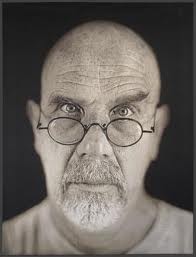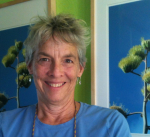Working from Limitations
 Wednesday, January 2, 2013 at 06:42PM
Wednesday, January 2, 2013 at 06:42PM  Sometimes what makes us powerful are our very limitations. I'm fully devoted to the notion that we find our best and strongest work by working from our strengths -- that is, after all what my book The Missing Alphabet is all about-- but defining one's strengths takes astute and deep consideration. Sometimes what looks like a weakness or disability to a parent, a teacher, the culture at large, or even to oneself can become, with a change of perspective, our greatest strength.
Sometimes what makes us powerful are our very limitations. I'm fully devoted to the notion that we find our best and strongest work by working from our strengths -- that is, after all what my book The Missing Alphabet is all about-- but defining one's strengths takes astute and deep consideration. Sometimes what looks like a weakness or disability to a parent, a teacher, the culture at large, or even to oneself can become, with a change of perspective, our greatest strength.
This article in the New York Times about artist Chuck Close makes the point.
“I wanted people to notice me, not that I couldn’t remember their faces or add or subtract,” Close said, referring to the learning and neurological disabilities that set him apart from his classmates when he was growing up in Monroe, Wash.
A terrible writer and test-taker, Mr. Close used art to make it through school. Instead of handing in a paper, he told the children, “I made a 20-foot-long mural of the Lewis and Clark trail.”
What are you calling a limitation that could be a defining element of your work?
All good and fine direction is defined by the "rules" that limit its scope. We don't (often or successfully) try to include every trick pony in the stable in one piece of art. Or use every color in equal proportions.
Some limitations need addressing, maybe a technical skill we need to improve, or our eye for a strong composition. But some things that I hear artists bemoaning on line --- their age, that they aren't good at drawing, that they only have a couple of hours in the week to make art-- might be just the "rules" that can help define their work. For example, in my case, I don't draw very well, I am getting better, but sketching is probably never going to be my FAVORITE art activity, and certainly understanding and mastering line and value, as good sketch artists do, is not something I am cut out to do.
I long ago figured out that I could cut shapes and forms far better than I could draw them (go figure, its just the way my brain works). I had to figure that out in order to proceed in making my work have the narrative content I wanted to share. I don't compare my weakness in drawing to Close's neurological inability to recognize faces, but I do count finding an approach to art that was a work-around one that is a great gift and strength in my work.
Some limitations, like Close's, might even turn out to be the great stand-out quality in our work.
For more about Close, listen to this podcast from PBS.






Reader Comments